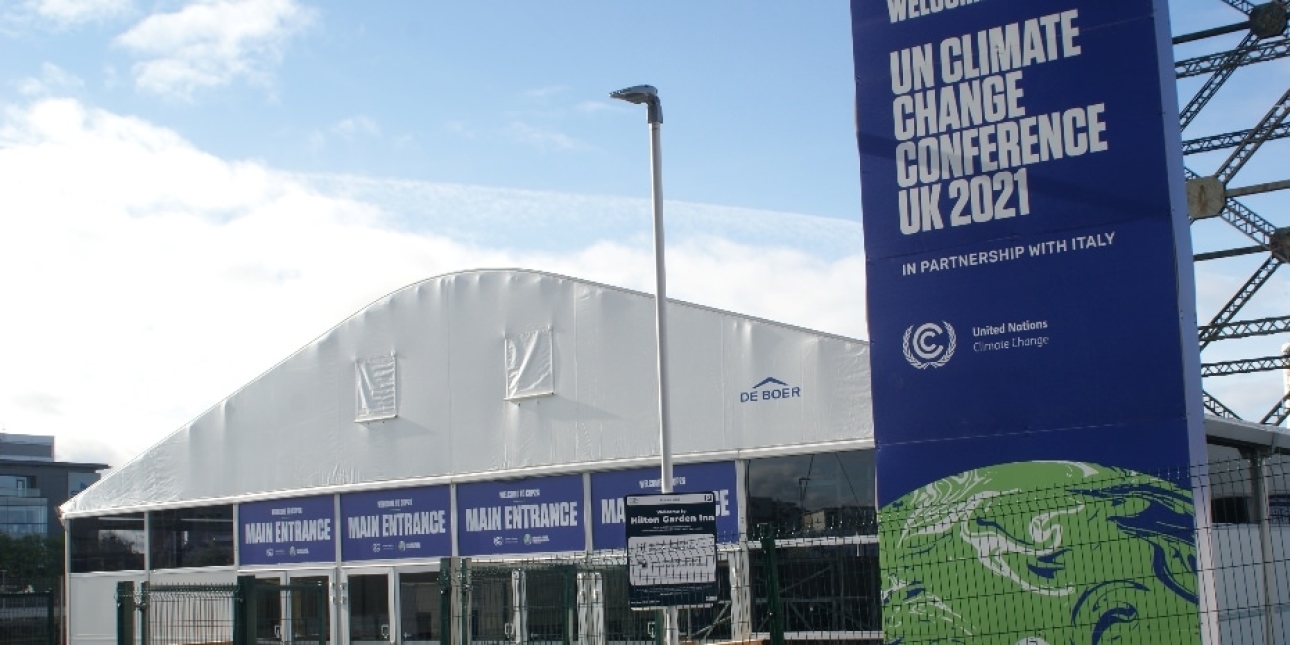INTERNATIONAL
Monday 15th November 2021
COP26: Getting Closer to 1.5?
Thank you Glasgow. COP26 in Glasgow has put climate at the absolute centre of the national and global consciousness and hard news. This is progress. The urgency to act on climate change is no longer debated. We have listened in more to those at the sharp end of the climate emergency – islands like Tonga and Barbados.
We are told that we are now closer to 1.5 degrees than we were before COP. But there is still a long way to go.
We need to follow the science and get better data so we can truly understand where we are and how we are closing the gap in the next few years. With real time data and satellite imagery over forests and industrial plants, for example we are all going to be much more informed about the climate reality and with it can make informed decisions about of carbon emission targets are being delivered and the brands we want to buy from and work for. Hope comes in the question which is no longer why but how. How can we transition to a green economy in a fair and equitable way in this critical decade? How can we use tools to reach scope 3 emissions and decarbonise entire value chains? How can we assign coal to the history books? How can we extend to nature and be regenerative?
Week 1 was full of hope, but how did things go from there?
Week 2 live from Glasgow and a deal
In week 2 there was room for hope. Ambitious business and governments are moving on and are using COP26 to get agreements backed by finance. Alan Jope, CEO at Unilever is asking all 56,000 suppliers to be 1.5 degree aligned. This will become the new normal. On transport day we heard how the aviation industry is literally sucking CO2 out of the air and converting it into sustainable aviation fuel. We heard from shipping companies that are creating green corridors to ensure decarbonised routes between major ports to ensure future carbon neutrality on global products. We heard much more about how companies are converting waste into new materials and becoming more circular. We heard more about companies looking at nature. Natura is responsible for 1.8billion hectares in the Amazon. They are joining forces to take more action on tropical forests without which there is no Paris Agreement. Natura believes that everyone should know where the company and its products are so the focus is on reporting and labelling for more accountability.
You can’t ignore politics
In week two Former US President Barack Obama spoke at the summit warning. It is great to have the US back in. There is optimism about the climate agreement between China and the US. Read more reaction to this here.
Obama encouraged young people to stay angry in the fight against climate change. He also said 'You can not ignore politics.'
This was the overwhelming message I heard from week 2 from business that they need Government to step in and enable faster change. India and China’s watering down of language on coal from phase out to phase down presents a real challenge in tackling climate change. We also need to match up sustainable finance, corporate governance and reporting in one big picture for transparency to all stakeholders including investors, employees and consumers as we build the green deal and an equitable and fairer economy.
The foundations for this are built in the deal but again there is a way to go on adaptation and delivering the $100bn annual target to those countries impacted the most by climate change.
COP26 was never about solving climate change. But this COP could be the 'beginning of the end of climate change'. I think the deal and the fact next year plans will be republished with more ambitious targets for 2030 is seen as both a 'ratcheting up and accountability mechanism'. As the world turns its attention away from COP26 we need to stay focused on delivery and progress – this is the real legacy of Glasgow.
Here is the Green Monday motivator to do list:
- Make an action plan and deliver on it– measure and show impact against targets
- Transparency and accountability are the only answers to scrutiny. We need to compare progress and stop the blah blah blah with detailed facts and figures. At the global stock in two years time businesses will need to come with results. This will help to rebuild trust and get closer to employees and consumers
- Listen to and include the climate vulnerable groups. Look at how business can support the just transition to engage workers and build jobs where there is displacement
- This is messy. Stick with the programme. “Achieving net zero is going to raise challenges for companies, but inaction will also come with a significant cost,” says Mary Schapiro, head of the secretariat of the Task Force on Climate-related Financial Disclosures (TCFD). “It’s going to require that every aspect of the business is on a path to transition. That may mean that some currently profitable products or services have to be phased out or eliminated.” Read more in the Bumpy Road to Net Zero. https://www.ft.com/content/ae2aefe9-ac59-4d3e-a446-5134e42dd059
- Find an ally- bring stakeholders together - the kind of systems change we need to solve the climate emergency will require radical collaboration – we have heard from competitors working together to keep 1.5 alive.
